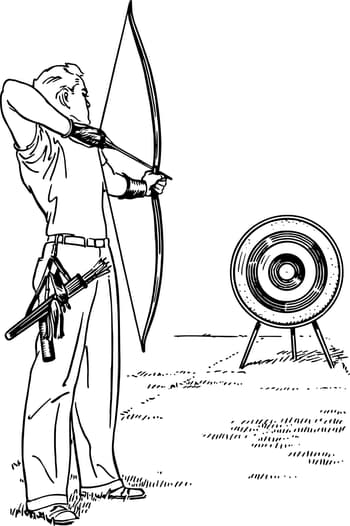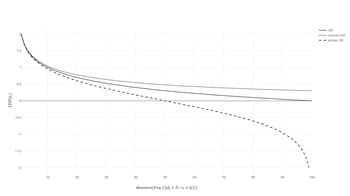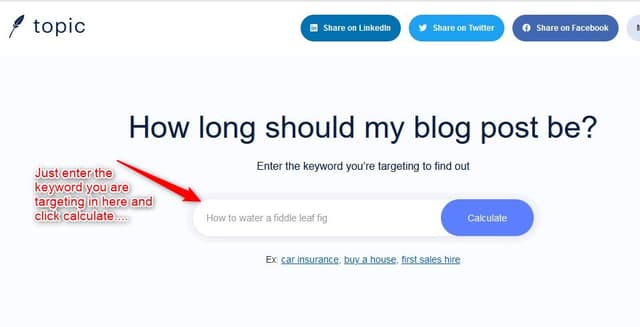updated 12th August 2021…
Table of Contents
At the start of your journey

When you start blogging most of us struggle to write articles…
I bet you remember your first article and have rewritten it, cringing when you reread it….i know i did…
You struggled at the time to write a 250 word article, and thought that was a massive article….
But how many words do you need for a wordpress post to rank highly…
Is there a magic number that will guarantee your to rank….
Let’s find out shall we…
Why are you writing the post

We need to take a little step back and ask why we are writing the post…
Don’t worry we will get to the numbers in a bit…
You are writing the article with an aim in mind…
Whether that is to get visitors to sign up to your email list, buy something, read another article to move them further down the buying chain, it is something to move them…
So can you say that all of these tasks are going to be the same post length….
I certainly wouldn’t expect them to be…
but looking online at what the ‘guru’s ‘ are talknig about it appears they expect you to write hte same length for any type of content….
What does the industry say
The industry has definite views on what it takes…
Coschedule found that posts with 2500 words ranked better on average
The average length of the blog post in the first 5 positions in the serps was 1600 words (according to Buffer)….
But why is this ….
Well google has a minimum post length of 500 words before it takes any notice as a quality article…
And Google is trying to return the highest relevance articles to answer the query asked….
I do agree with what yoast say …that posts with a high word count should have more synonyms and related words in there…either by knowing the subject of finding ‘keywords’ associated with your main topic…
And do we really need to write that much or more….
How can you tell…
Less waffle more action
You are writing content for your visitors to read, take something away, and remember you…..
Oh.. and for the search engines to dissect and categorize under the topic you want to rank for…
Not much then…
But how do you decide how much to write…

Do you choose your sub heads and write a certain amount under there and that’s it.
Or do you wing it…seeing what happens …and if it gets too long go back and add another subhead…
Or if you can’t find enough do you put ‘filler content ‘ in there just to pad it out for the words count…
Well my version is almost a little more scientific…
My take on it
Google is clever…
Not as clever as you or me, but still clever…and fast…
It will scan your post in about 0.01 of a second ( faster than you can blink your eye, typ 0.1 seconds) and in that time it will

have:
- counted the number of words
- put together a map of the words
- tried to determine the topic of the post from the words you have used
- and the order of the words…
So what does that have to do with the number of words in your post….
Google will return the most relevant articles for any query it can…
So the top 10 articles are the most relevant it knows about at the moment…
But you are about to write one with more quality and more relevance….
If only you knew how…
What if you could take all of the top 10 articles and strip them down into their component parts and see what was going on…
Would that help….

Well there is a technique called term frequency analysis or TF for short which analyses the number of times words are used
in an article…
And it is usually combined with inverse document frequency analysis (IDF)…
So we have TF-IDF analysis…
Sound familiar….
I didn’t know anything about this a while ago…so don’t worry…
This is a technique of looking at content and finding the common words and the frequency of them…
almost like a word cloud… but comparing all of the words for the top SERPs…

Some tools can go on to do the two and three word relationships as well….
If you do this for the top 5 or top 10 results for your keyword…
This will help with the SEO for your post if nothing else…
Why would these be important for the word count…
Well the words and phrases that come up have been determined by Google to being relevant to the keyword….
And the higher the frequency the more important…
You have to remember what you are trying to do when you write a post…
And that is to get organic traffic from the search engines and to be more relevant to them than the current top results…if you are not then why would Google put you in the top place…
So you have the relevant words and phrases related to your keyword…
The number of these and the concepts they talk about will dictate the length of your article….
And the length of the current articles at the top….
Look through the three word phrases and see if you can make any sections within your post about them or are they answering a question your reader may have about your keyword…if so make this a subheading…
If you aim for 10-15% over what the average is of the top 10 then you should be able to use all of the TF-IDF words and phrases…
And it is unlikely that the others within the top 10 will look and decide to outwrite you at the moment….
Moz did a post about it and how to calculate the TF-IDF manually…
And there are other tools that a free which will give you the TF-IDF information on a post
So how long should your wordpress post be….
As long as necessary to outrank your competitors, using the relevant words they do…
I do know of a tool that can extract the theme words and phrases from the top results for a keyword….
It then allows you to sort and manipulate the list …write the content…
See how many from the list of tf-idf words and phrases you have missed…well the tool calls them theme words and phrases…
Add them if they sound natural…
And check your result against the top 10 to see whether you are more relevant….

And this tool is called Web Content Studio….
I bought it a few years ago and have been using it ever since…
Does it work…..
Yep…i have achieved more top spots while writing with this tool than with standard keyword research….
And it has helped me increase the length of my posts…
Is it free …sorry nope…
Does it come up on special…nope….
But you can check out the videos by Dr Andy Williams (aff link) and see how he uses the tool….
How do i determine the length of my wordpress posts
As i said above i add 10-15% onto the length of the posts already at the top in google…
From there i break it down into sections of average 300-400 words between subheadings…
The subheadings on the already ranked posts can be seen in the them word results panel…you can get ideas from there…
So now you have the outline …write the content to go in the paragraphs…
And then check the number of theme words and phrases you have …
Use the search tool included to find parts of your post that could do with added words or phrases from the missing words panel…
And do a final check of your stats against the others on page one….
How does yours stack up
You know by doing this you have a ton of relevant words for your keyword so Google will take notice of it…
Make sure you check that you don’t go too overboard with the words or phrases to be in the keyword stuffing area….
Again web content studio has your back with reports on your content…
And a very useful search feature…this shows not just how many times it occurs but hte few words around where it occurs…
So you can choose which one to change or add another theme word to…
And that’s it for the content writing…
After this there is the usual external links, internal links, images , alt text, table of contents, category, tags….
And publish after a quick read through to make sure it has the rhythm you want….
Is it a guarantee of ranking…nope, but it will give you loads of theme words and phrases that the top results are using so you can include these in your article…
It will give the reader comprehensive information on the topic you are writing about….
So how do you work out your blog post length currently and are you going to be doing it differently form now on, let me know in the comments if you have any suggestions for how many words i need in a wordpress blog…
Content length calculator
One of the sites i follow has sent me details of a content length calculator….

so thank you to usetopic for creating this useful tool…
just add the keyword you are targeting and see what length of content you need to create to rank highly…
click on the image to be taken to their site… you may need to sign up to use the tool
let me know how you get on and whether this helps you….
About the author
Phil has been working online since 2015 and working with computer for longer than he can remember..
He has successfully built a few sites that are ranking highly...
He is now experimenting with techniques to see how far google has gone with the ranking process, with an eye on the speed of the sites along with the web core vitals...
His philosophy is 'if you can control it then do'....
If you want Phil's help then please use the contact page to reach him...

A really good article on creating content. Very informative and in depth. 2,500 words seems like an awful lot of writing. How long does that take you? I have never heard of web content studio but am going to look into it. You say it helps with the length of your articles, how does it do that? Again thanks Phil for an excellent post. I felt like you really cared. 8-)
Hey Steve, thanks for visiting…
2500 words may seem like a lot but if you pick the right topics and use web content studio you get to see behind the scenes on the other sites with the ability to see the subtitles of the articles…
and with being able to see the main theme words ( the common words between all of the top 10) then you can structure your writing easily…
with the search facility you are able to see the structure of your article and make sure it is useful for skimmers as well…
but is it worth remembering that google has already selected the top 10 and you need to have a different angle to have google think, ‘oh ok that one is more relvant than what i have already chosen’…
and to do that you need more information or information presented in a different way…
Hi Phil. Thank you for very interesting article. I just started my adventure with blogging but I already learnt how difficult is to create good post even if you know what you want to tell. To be fair I never focused too much on number of words, but looking on your post it is also worth considering (especially that google is checking it). Looking forward to use your advices and recommendations and I hope it will make be a better blogger.
Hi, Thanks for dropping by and reading the article…
Iit can be difficult, especially at the beginning with so much to learn, to find out what is important…
Working out that you are not only creating content but trying to beat the top 10 on the first page of the SERPs can be eye opening…
Along with the fact that unless you introduce something new, why should google upset what it already has chosen….
So you need to bring something new to the table… a better explanation, a different format…some original research….
But it is not impossible to do this… it just takes time…
Good luck with your online journey, i hope you have a lot of success….
Phil
Thanks for this very useful post. I stumbled upon this at the perfect time, as i was just talking to friend about this. So i’ll send them the link. I was quite surprised at Coschedules 2500 word target, as i figured that would be pretty long for a lot of people to read. I like to go for about 1200-1500 words in a post
Thanks for dropping by and commenting….
It is getting more competitive in the blogging market and Google is looking for more relevance on a topic…
so if the topic is broad you need to cover all of it in depth….
so 2500 words or more is not unusual…
but temper that with what else i have said in this article that you need to outwrite the top 10 for your keyword….
so always look at the top 10 and see what they have done, and ask….
is there more to write …
can i combine more information…
is it all clear enough for my audience…
can i format it differently….
if your answer is yes to any of those questions then write the post…
if not then why would Google drop one of the others in favour of your post…
why use your valuable time to write something that probably will never rank highly….
ok so the search engines are not the only source of traffic and if it fits with your site then internal linking will help as will other promotion….
but think about what you are going to write and see what others have written before using a fixed formula….
people will read it if it is entertaining or educating…..
people will not read it if it is full of filler or waffle….
so careful planning of what you are going to help peopel with is very important…
Very good information from Coschedule (2,500 words ranks better) and Buffer (top 5 in ranked articles average 1,600 words). Until this article I had never heard of Term Frequency Analysis (TF) or Inverse Document Frequency Analysis (IDF).
You mentioned the tool you have used for a few years for TF-IDF Analysis is Web Content Studio, and that it is not free. What does it cost?
Hey Bill, thanks for reading and commenting…
it can be a bit of an eye opener that there may be a niche language that google is looking for…
but web content studio does a pretty good job of finding the words and phrases that will help you get to the top….
the price is around $167 with a 60 day no questions asked money back ( but i don’t think too many people will take this up once they try it)
it is available for pc and if using a mac hten you will need to run windows through virtualbox or similar…
you can also use it when you get copy written for you to test it against the top ten before publishing and find the theme words missing …
i thought it was worth it even a few years ago…
“I add 10-15% onto the length of the posts already at the top in google” This is great advice. I always aim for 2000ish words depending on the topic but I never once thought to take this approach. If I was to look now at the last post I wrote and compare it with the top result …. (Phew) all 5 top results are a couple of 100 words shorter. but that’s a fluke. Now I know this trick I am going to start using it with everything I write. The trick is to keep the article informative and not use fluff.
it is worth bearing in mind that you need to convince Google to drop one of the posts from the top 10 to fit you in…
so it needs to be better than any of them, more relevant in google’s eyes…
it all definitely needs to be on topic and remember that is no one is using tables and it would be more convenient to have hte data in a table then add that and you may not need to add more words…
you may even get the featured snippet with that…
so rather than aiming for a fixed figure it is worth checking the top 10 out…
good luck
The number of words varies but I think Google mostly looks for the relevance of your content and if people find it useful. Many SEO experts suggest writing a post with at least about 1500 words because this shows that you know what you’re writing about and you have more details. There are posts of about 400 words on the first pages but this is because they have already grown their ranking and google trusts them.
i disagree with you Kenny…
as i say in the article, you can gauge the number of words from the articles already ranked…
then decide whether you can reformat the information or outwrite them….
so i never think of it as a fixed number… it is always an investigation….
using theme words you can come up with loads of headings and check whether you have used enough of hte theme words and phrases….
you do still need to know something about the topic as google and your readers will spot a fake a mile away…
but if you carry on with your fixed word count you will lose out in the future….
but good luck
phil